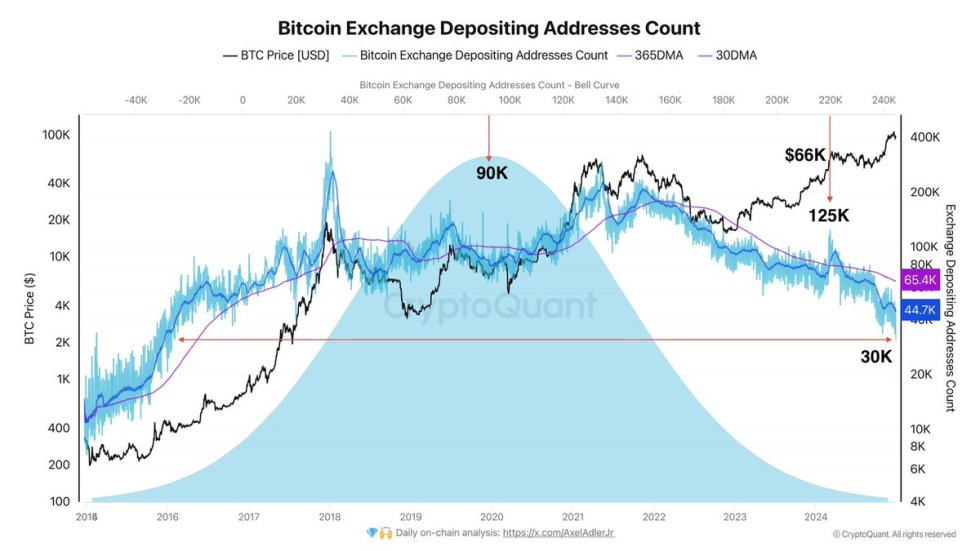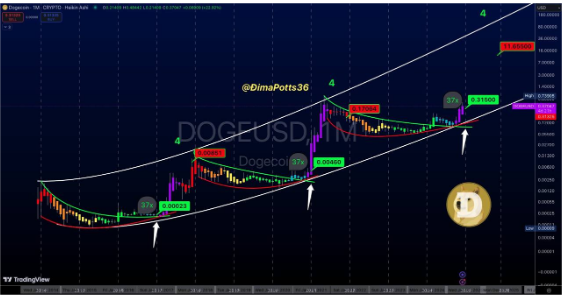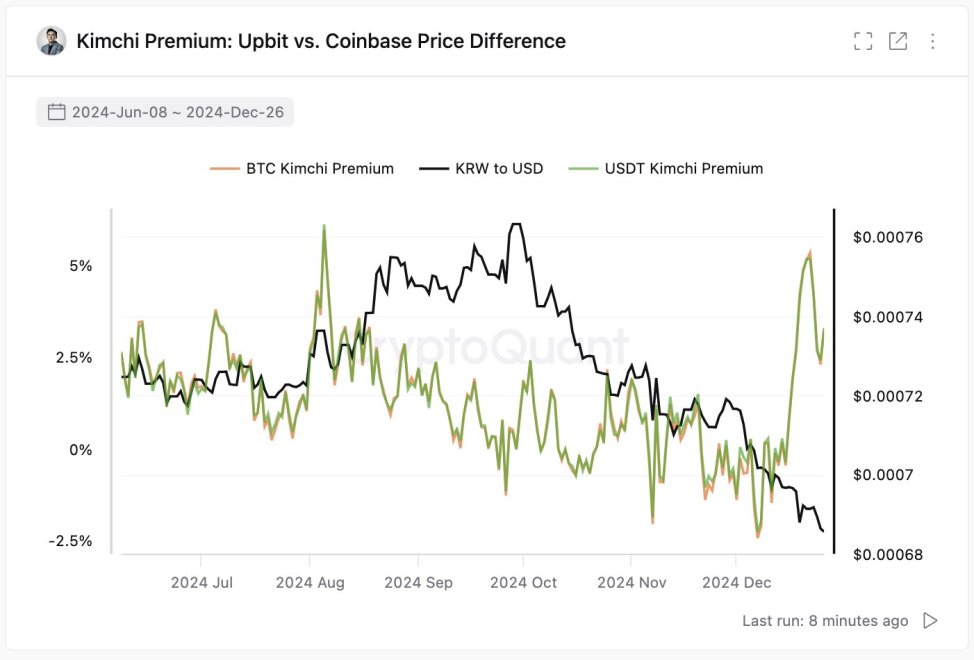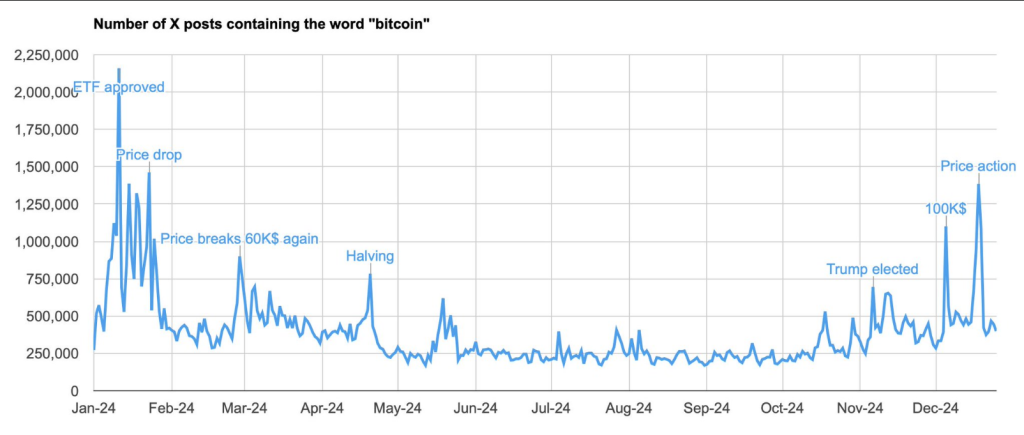Few inventions in finance have created as much talk and excitement as Bitcoin. This cryptocurrency has evolved from a tiny digital experiment to a global financial phenomenon since its launch in 2009. However, many people are wondering whether Bitcoin will ever overtake fiat currencies or if crypto itself will be relegated to niche use.
Bitcoin's Perception as a Store of Value
The perception of Bitcoin as a store of value is one of the most important elements driving its adoption. Unlike traditional fiat currencies, which are susceptible to inflation as a result of central bank policy, Bitcoin has a fixed supply limit of 21 million coins. This scarcity is intended to maintain Bitcoin's value and shield it from the devaluation that can occur with fiat currencies. Individuals and organizations have turned to Bitcoin as a hedge against currency depreciation as concerns about inflation have intensified, particularly in the aftermath of economic uncertainty.
Institutional Investment
Institutional investment has been essential in propelling Bitcoin adoption to new heights. Bitcoin is gradually being recognized as an asset class worthy of investment by major corporations, hedge funds, and asset managers. This shift in attitude has resulted in significant capital inflows into the cryptocurrency industry. Several factors have fueled institutional interest in Bitcoin, including the desire for portfolio diversification, the potential for high returns, and the rising acceptance of Bitcoin as a real store of value.
Growing acceptability and Integration
As Bitcoin has progressed from obscurity to widespread acceptability, it has been more integrated into the traditional financial system. Leading payment processors and financial institutions have started to provide Bitcoin-related services, making it easier for consumers to purchase, sell, and store Bitcoin. In addition, certain nations and regions have taken steps to establish regulatory clarity for cryptocurrencies, creating a more favorable atmosphere for Bitcoin adoption.
Technological advances
Technological advances inside the crypto ecosystem have also aided Bitcoin acceptance. Individuals and institutions can now connect with Bitcoin more easily because to the development of secure and user-friendly wallets, exchanges, and custody solutions. The introduction of Bitcoin-related financial products such as futures contracts and exchange-traded funds (ETFs) has provided investors with new ways to obtain exposure to Bitcoin price changes.
Global Economic instability
Global economic instability, aggravated by events like as the COVID-19 epidemic and geopolitical conflicts, has prompted many people to seek alternative financial assets, such as Bitcoin. In times of crisis, the concept of a decentralized, borderless money that works independently of established financial institutions has proven increasingly intriguing. Furthermore, Bitcoin's capacity to conduct cross-border transactions without the use of intermediaries has established it as a crucial tool for individuals and enterprises navigating international financial issues.
Increased Accessibility
The rising accessibility of cryptocurrencies has also fueled Bitcoin acceptance. Individuals may now acquire, keep, and use Bitcoin more easily than ever before thanks to cryptocurrency exchanges, mobile apps, and peer-to-peer networks. The presence of Bitcoin ATMs in various places around the world has increased its accessibility. These devices enable customers to buy Bitcoin with cash, linking the digital and physical worlds.
Fear of Missing Out (FOMO)
FOMO, or the fear of missing out, has played a psychological effect in pushing Bitcoin acceptance. With Bitcoin's price seeing substantial rallies and media attention, more people have been motivated to participate in order to avoid missing out on possible benefits. The FOMO phenomenon has been aided by social media, news coverage, and word-of-mouth debates. Many newbies to the cryptocurrency industry have been enticed by stories of early Bitcoin investors who became millionaires, which has fueled their desire to engage in the market.
Financial inclusivity
Another compelling aspect driving acceptance is Bitcoin's ability to foster financial inclusivity. Bitcoin provides an alternate means of making financial transactions in areas where traditional banking services are unavailable. Individuals who do not have access to traditional banks can participate in the global economy by using Bitcoin wallets and smartphones. Furthermore, Bitcoin-powered remittance businesses have made it possible for migrant workers to send money to their family back home. By lowering fees and enhancing efficiency, this use case has the potential to revolutionize the remittance sector.
Use Case Evolution
Bitcoin's use cases have evolved beyond its status as a digital store of wealth. It has acquired adoption as a payment method by a variety of merchants and online platforms. Some businesses already accept Bitcoin in exchange for products and services, allowing consumers to immediately spend their holdings. Furthermore, the Lightning Network, a second-layer Bitcoin solution, has increased its scalability and speed, making it more ideal for everyday transactions. This advancement has increased the utility of Bitcoin as a medium of exchange.
Regulatory Clarity and Compliance
Clearer regulatory frameworks and enhanced compliance initiatives have made Bitcoin adoption more steady. Cryptocurrency exchanges and businesses have made strides in conforming to anti-money laundering (AML) and know your customer (KYC) rules. The adoption of regulatory best practices has established trust in users and investors alike, lowering the notion of illegal behavior in the cryptocurrency market. Improved compliance procedures have also cleared the door for institutional adoption, as institutions feel more at ease participating in a regulated environment.
Bitcoin Adoption Obstacles
While these factors have fueled Bitcoin adoption, obstacles remain. Price volatility is a worry, since large price swings can deter some consumers and companies from using Bitcoin as a payment method. Scalability concerns, as well as high transaction fees during times of network congestion, have sparked debate among the Bitcoin community. Furthermore, legislative developments and prospective changes in tax treatment may have an impact on Bitcoin's attractiveness to investors and consumers. In some regions, regulatory uncertainty may discourage firms from fully embracing cryptocurrency.
How the Spot Bitcoin ETF is Paving the Way for Crypto Mass Adoption
The cryptocurrency world is buzzing with anticipation, and it's all thanks to the impending arrival of a spot market Bitcoin ETF (Exchange-Traded Fund). After years of legal battles and regulatory scrutiny, a spot market Bitcoin ETF is finally on the horizon, and it could be a game-changer for the entire industry.
This ETF represents a financial product that allows investors to access Bitcoin's spot market prices within traditional stock exchanges, offering a regulated and familiar investment avenue. While similar products already exist in Canada and Europe, they have remained out of reach for U.S. investors due to repeated SEC rejections.
Excitement around the spot Bitcoin ETF stems from a recent U.S. Court of Appeals ruling, criticizing the SEC for approving a futures-based Bitcoin ETF while rejecting spot market-based applications. This development has reignited hopes that a spot market ETF may arrive in U.S. markets by year-end.
The implications are monumental. The ETF opens the door to mainstream cryptocurrency adoption, offering U.S. investors a regulated entry point into the market. This could drive substantial capital into the crypto space, propelling it to new heights.
Moreover, the association of a spot Bitcoin ETF with financial giants like BlackRock has generated immense optimism. BlackRock's ETF submission alone caused a 20% Bitcoin price surge, underscoring the market's enthusiasm.
While uncertainties remain about the SEC's stance, the current climate suggests a shift in favor of cryptocurrency adoption. The arrival of a spot market Bitcoin ETF may be the catalyst that drives crypto mass adoption.
Conclusion
A convergence of variables has marked Bitcoin's journey from a whitepaper to a global phenomenon, including its role as a store of value, institutional adoption, technological developments, and global economic dynamics. While obstacles exist, Bitcoin's adoption is increasing, and its integration into the larger financial ecosystem is set to advance further. As the cryptocurrency ecosystem matures, it will be critical to track how these factors influence Bitcoin adoption and the broader financial industry. The continual interaction of technology innovation, legal advancements, and economic pressures will undoubtedly shape the trajectory of Bitcoin's adoption in the next years.
This article was written by Pedro Ferreira at www.financemagnates.com.
You can get bonuses upto $100 FREE BONUS when you:
💰 Install these recommended apps:
💲 SocialGood - 100% Crypto Back on Everyday Shopping
💲 xPortal - The DeFi For The Next Billion
💲 CryptoTab Browser - Lightweight, fast, and ready to mine!
💰 Register on these recommended exchanges:
🟡 Binance🟡 Bitfinex🟡 Bitmart🟡 Bittrex🟡 Bitget
🟡 CoinEx🟡 Crypto.com🟡 Gate.io🟡 Huobi🟡 Kucoin.




















Comments